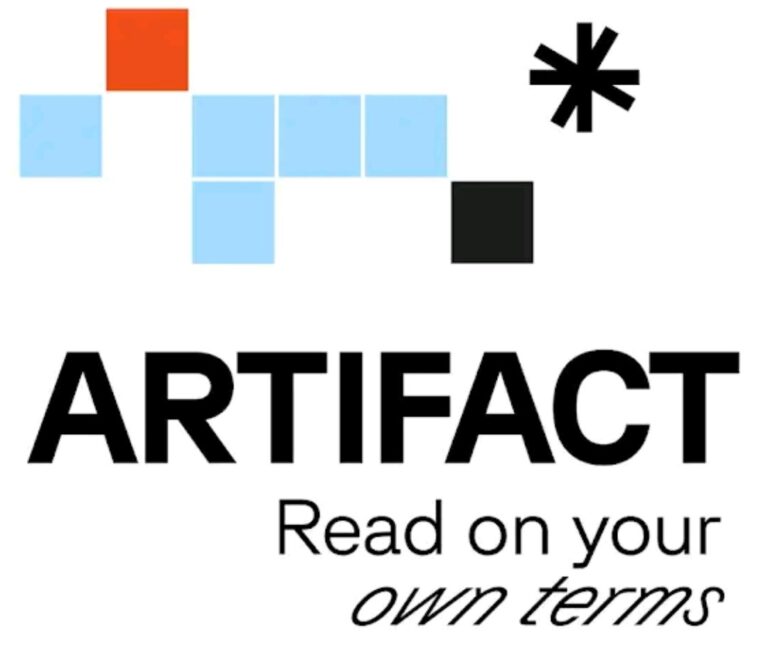Kevin Systrom and Mike Krieger – the founders of the hugely popular Instagram app, now owned by Meta – are back with a new project. The brand-new Artifact app is a “text-based” platform – like Twitter, for instance – that will precisely compete with Elon Musk’s recently acquired social.
The visionary entrepreneur duo, who back in 2010 launched the hugely popular photo and video sharing app Instagram, talks about the new app as a social tool to combat misinformation.
Let’s see what Artifact will look like, and what its main functions will be.
Table of Contents
Artifact: the app against disinformation
Riding the wave of artificial intelligence, Artifact will leverage data aggregation technology to collect relevant news and articles according to users’ interests. But, without the use of user filters, so that news will be shown in a super partes and unbiased manner.
“It’s a particularly interesting time for technology. The purchase of Twitter by Elon Musk and the rapid development of the Metaverse open up an exciting landscape. But one to be navigated carefully,” Systrom explained. “It is most important for us to focus on such a platform to help fight misinformation.“
Systrom speaks of Artifact as a possible direct competitor to Twitter, useful for spreading news across the board but without polarizing the platform.
Indeed, as recent evidence shows, Twitter’s decline is unstoppable, especially from an advertising investment perspective. Meta – which owns Facebook and Instagram – and Alphabet – owner of Snapchat and YouTube – are also facing a complex period of staff cutbacks and quick runs for cover.
Systrom, however, does not seem worried. Along with Krieger, he believes strongly in the potential of Artifact, on which millions of dollars have been invested so far in development over the past two years. Yet, the company – based in San Francisco – has only seven employees.
This is because the project does not vast the billion-dollar investments of other platforms developed in Silicon Valley. And the two have been unable to find investors for a new social media platform, given the fairly bleak landscape.
“Instagram was definitely a lucky project, and the money came right away,” Systrom explains. “For Artifact we’re having a bit of a struggle. But we’re spending what there is to spend wisely and taking our time to launch a finished, high-performing platform from day one.”
What will Artifact look like
Artifact will use machine learning technology to sound out a curated list that includes major accredited news outlets. We talk about the New York Times, Vogue, Financial Times etc. However, there will also be room for blogs followed on various niche interests.
The more the user uses the app, the more precise the algorithm will become. Thus, showing only the main news and other articles that interest the reader most.
The structure will be a bit like TikTok’s. Namely, fast scrolling, fast engagement. Users will be able to follow each other and send each other private messages. These are features very similar to any social platform on the current landscape. The big news is that, at least up to what has been leaked so far, you will not be able to write posts but only read and share them.
In the future, there will also be room for advertising – strictly personalized via cookies. Those who want to use the ad-free platform instead will be able to access different general or specific subscription plans for the advertising titles they are most interested in.
How will Artifact work
As described by the founders, Artifact will remain more of a structured information source. Namely with less room for social features. So, as to maintain as much as possible a truthful and super partes approach to information.
The algorithm will screen out any bias arising from other social networks. And will conduct thorough fact-checking on each news item. And, to keep debates heated, users may receive news with opinions they disagree with.
“It’s critical for us to dedicate a part of the feed to all that part of the news that ignites debate, also exploring interests parallel to current events-which, often, a news outlet is limited to doing.”
The startup will thus ride the wave of artificial intelligence, a field thriving in Silicon Valley and blindsided by the huge success of ChatGPT, the language model launched by OpenAI late last year.
“When we launched Instagram, we rode the wave of the rapid development of photo technologies for smartphones. Today, we are exploiting another trend, putting it in the service of information and truth, which is much needed in recent times.” The waiting list to register for Artifact is already open.
Read also: Deep learning, how the technology that is revolutionizing AI works












